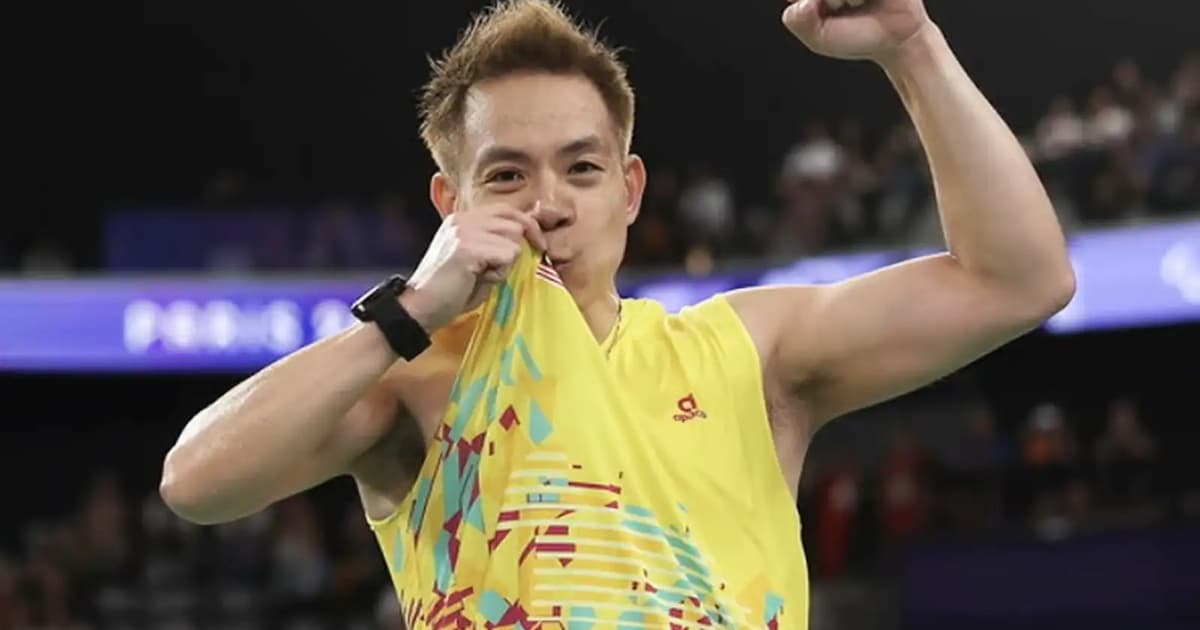
Shuttler Cheah Liek Hou won gold at the Paris Paralympics. The RM60,000 promised to him has not arrived in full. One sponsor pulled out. Another stalled.
Frustrated, Cheah went public. For speaking up, he was called “impatient, ungrateful, upsetting.”
It was messy. It was avoidable. And yet, it was not malice, rather poor planning.
The Paralympic Council of Malaysia (PCM) had gone the extra mile. Unlike the national sports incentive scheme (Shakam), these were not official state rewards.
They were bonus incentives, raised through sponsors to celebrate Cheah and his teammates.
But the structure buckled. One of the three pledged sponsors withdrew, citing financial issues.
Another made partial payments in April — RM10,000 to gold medallists, RM5,000 to silver medallists, RM3,000 to bronze medallists — while assuring athletes the rest would follow. The balance, from a foreign firm, was held up because its CEO wanted to be present in Kuala Lumpur before releasing the funds.
The athletes were told all this in April. Still, the optics were clear: medals in hand, but money in limbo.
What began as goodwill looked like a broken promise.
Today, PCM will finally hand over the money, less than promised. The chapter closes, but the questions remain.
PCM stresses these incentives are “extra.” That is true, but once announced publicly, athletes take them at face value.
Even if delays are explained, waiting months for a CEO’s travel schedule makes world champions feel secondary. A delayed cheque feels like a broken medal.
The lesson here is not to stop rewarding athletes. Quite the opposite. It is to reward them better.
Handshake arrangements are fragile. Contracts are not.
Announcements should follow agreements, not precede them.
Communication must be clear, not left to assumptions.
Otherwise, what should be a moment of honour turns to a moment of doubt.
Voices matter
Officials warn that athletes’ complaints could “drive sponsors away.” That misses the point.
Speaking out on social media or to the press is not rebellion. It is the last resort when institutions fall silent.
Athletes’ voices are not threats. They are feedback. They show where systems fail. They point to where trust can be rebuilt.
Instead of framing Cheah’s post as disloyal, it should be read as an alarm bell — calling for stronger structures, not weaker voices.
For the 1966–82 national sports award winners, RM5,000 was a life-changing sum. Its absence still stings decades later.
For Cheah, powerlifter Bonnie Bunyau Gustin, track and field trio Latif Romly and Ziyad Zolkefli (both silver) and Eddy Bernard (bronze) , waiting for a sponsor’s timetable trivialises their achievements.
Medals endure, but public memory fades — and when rewards lag, recognition slips away. This is not about charity. It is about respect.
Systems that work
Malaysia already has one model that works: Shakam.
Gold, RM1 million. Silver, RM300,000. Bronze, RM100,000. No ambiguity. No waiting. No excuses. Athletes know exactly what they will get.
PCM’s efforts, by contrast, rely on goodwill. And when goodwill falters, athletes pay the price.
The key lesson is simple: goodwill is wonderful, but systems endure.
What must change
Contracts must come first, with announcements made only once details are firm.
Sponsors should commit in writing, with clear timelines athletes can trust.
Voices must be respected, not silenced — for speaking out is accountability, not defiance.
And the historical debts, like the long-unpaid RM5,000, must finally be honoured if institutions are to move forward with credibility.
Above all, incentives must be transparent and enforceable.
That way, athletes get recognition, and associations keep their credibility.
For Malaysia’s athletes, recognition must never hinge on a sponsor’s schedule.
For institutions, credibility rests not on promises made, but on promises kept.
Goodwill is a start, but only systems, contracts and clear timelines ensure that promises made to athletes become promises kept.
The views expressed are those of the writer and do not necessarily reflect those of FMT.






